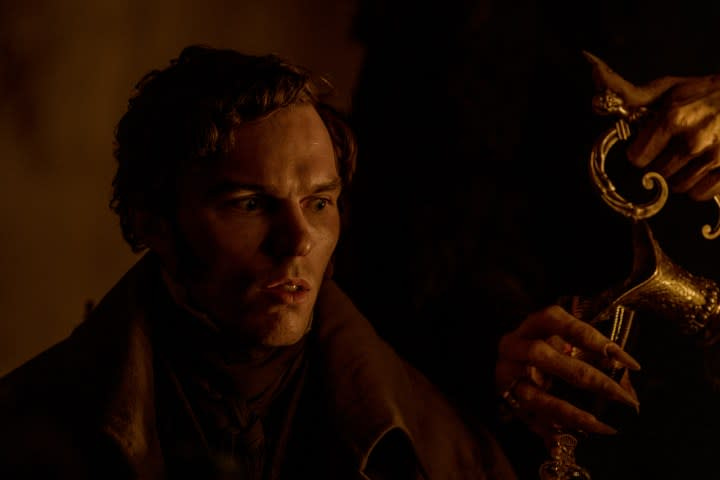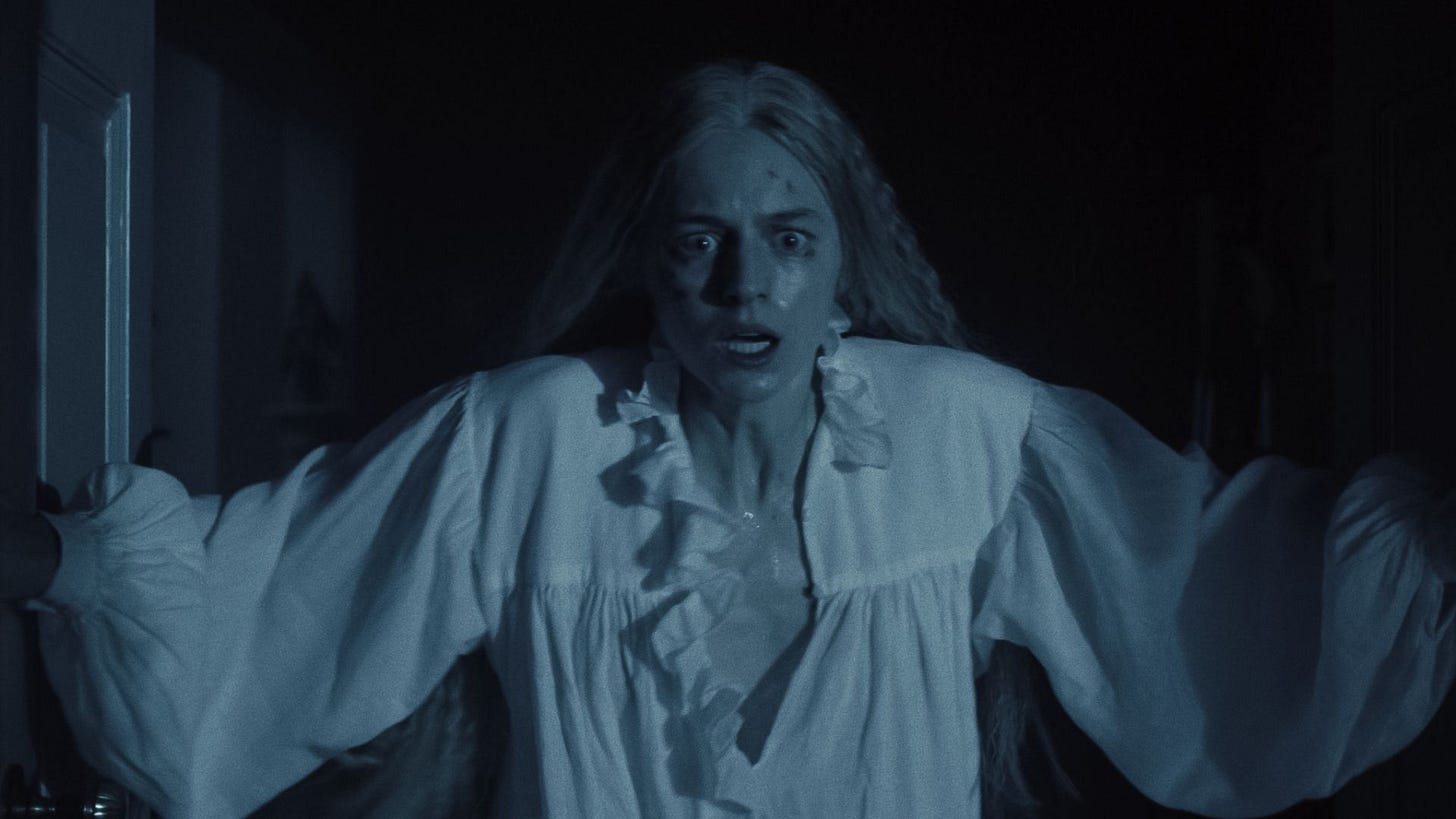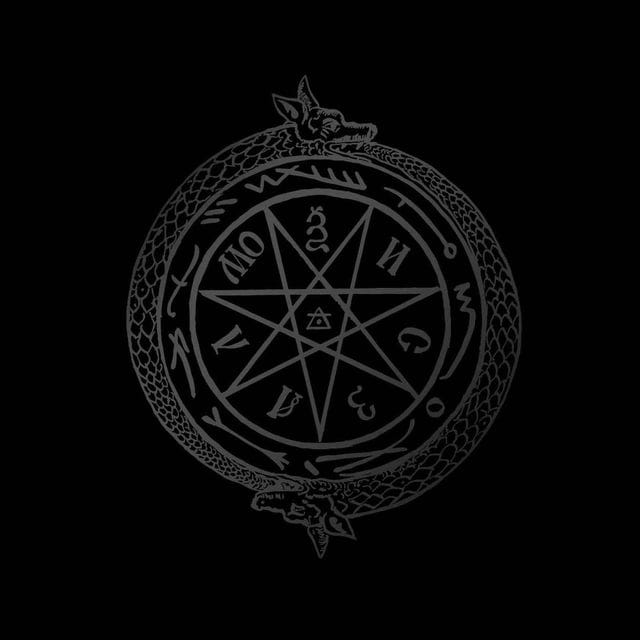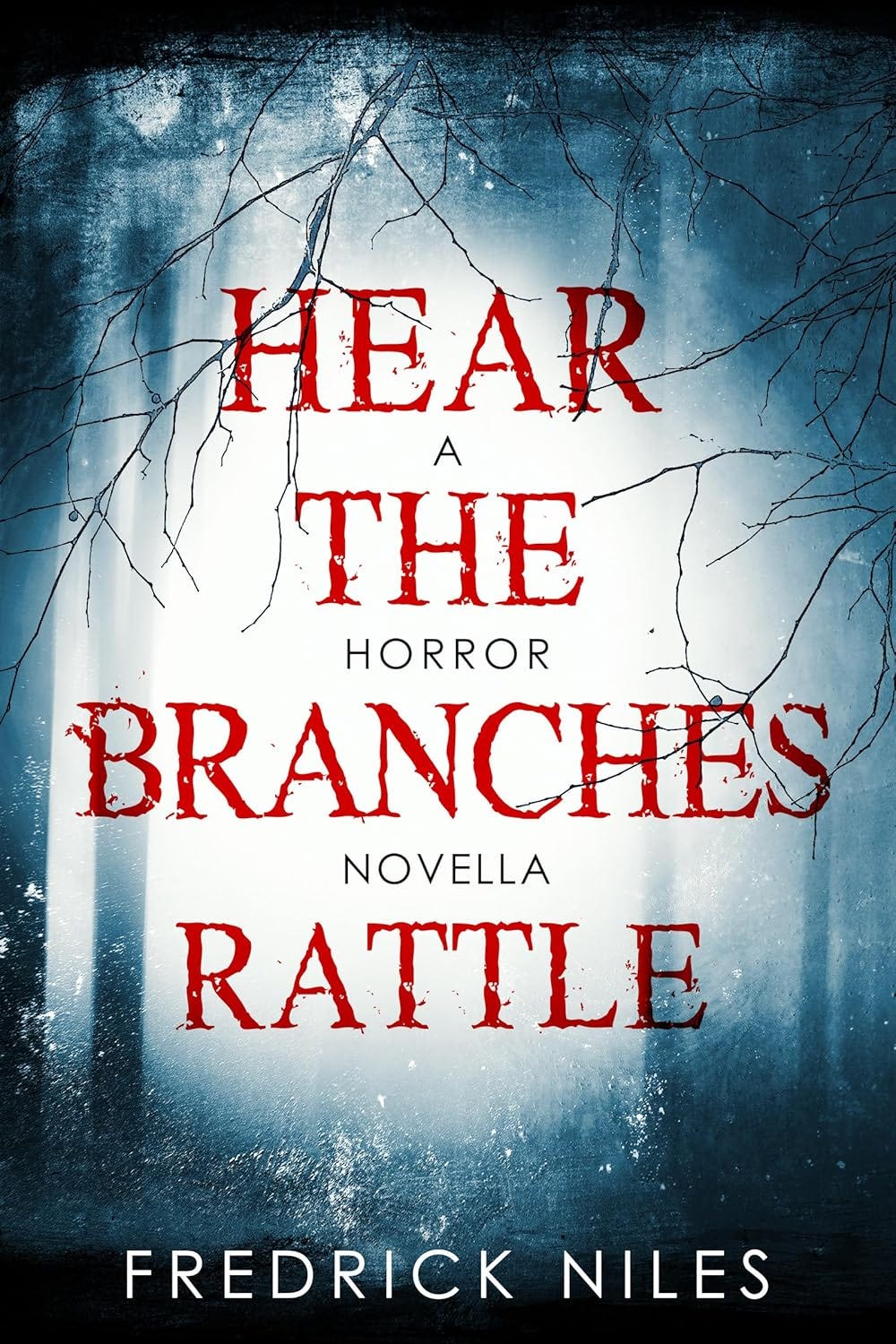Photo Credit: Universal Pictures
When a new Nosferatu film was announced, I’ll admit that I was worried. I love Robert Eggers–his first two films, The Witch and The Lighthouse are all-time favorites of mine and always hot on my tongue when it comes to movie recommendations–but even so, I know that even the most solid of directors often have to bend to studio demands and right now we are firmly neck-deep in the trend of What if the Bad Guy Is Actually Just Misunderstood?
With Wicked dominating the box office at the same time Mufasa: The Lion King is actively working to retcon Scar into a tragic step-brother figure, it seemed impossible that we would get a vampire film (a genre known for sympathetic villains) that was also a remake that didn’t try to convince us that the titular Nosferatu was actually just a bullied kid with abusive parents or something.
But if you were like me and that was your fear then you can cast your doubts aside. The villain of the film, Count Orlok, is chilling and irredeemably merciless. He has not a single trace of humanity left in him, occasionally even being referred to as the Devil himself. At times, Eggers uses moments of seeming sensuality and tenderness to draw you in only to suddenly and explicitly remind you that Orlok is “nothing but appetite.”
The film is brutal, gut-wrenching, and occasionally nauseating to watch. I myself watched it on a dark and foggy night and was very thankful that a few friends accompanied me to the theater and were willing to grab a beer afterwards, allowing us to build a nice little buffer of camaraderie between the experience of the film and going to sleep that night.
Since the movie delivered on almost everything I was hoping it would, I was excited to jump online the next day to see what folks were saying about it. Most of the discourse is largely the same: Reviews are generally positive, praising the tone and atmosphere. Lots of folks, myself included, are happy to see supernatural evil addressed onscreen (more on that later) instead of handwaving it away into some sort of moral relativism. And of course, there is a lot of pointless nitpicking over the Count’s giant mustache.
However, I have seen a lot of criticisms about the film’s lack of subtlety. Unlike other adaptions of Dracula and Dracula-esque characters (official or otherwise) the rich vampiric aristocrat in question has no charm, no magnetism, and no qualities we might generally associate with a seductive vampire. The first time we see him, he is so obviously and preposterously evil that we can hardly believe anyone wouldn’t just immediately runaway.
The fact that he is so visibly gross and lacks all manner of aristocratic charm is an important piece to understanding what makes this version of the character unique when compared to his other onscreen and in-text counterparts and will be the crux of this and next week’s posts. For this one, I’m going to focus on Nicholas Hoult’s character, Thomas Hutter. And next week I will be focusing on Lily-Rose Depp’s character, Ellen Hutter.
Both of these characters embody different aspects of modern society (cold rationalism and undiscerning openness, respectively) that, while seemingly opposed, actually play off of each other in important ways that ultimately allow evil to gain a foothold in the world.
A Mere Bag of Gold
Photo Credit: Universal Pictures
The setup for Nosferatu is relatively simple. In the first scene, we see a young woman named Ellen calling on spirits to comfort her. But instead of God or an angel coming to her side, we get the nefarious shadow of Count Orlok suspended on a flapping white curtain. Some years later, Ellen’s new husband, Thomas, is offered a lucrative job that calls him to a remote castle to conduct a real estate transaction with a shadowy figure going by the name of Count Orlok.
When Thomas arrives, we are treated to a fantastic and incredibly disorienting sequence of scenes that ultimately reveal Orlok to be a vampire. Thomas, by the Grace of God, barely escapes the castle with his life and is then forced to contend with the fact that Orlok is coming after his wife and will be using the estate that Thomas just sold him as a foothold to do it.
A lot of people have criticized the film for what they perceive to be a “shaming” of Ellen’s character. The critique goes something like: a young woman is taken advantage of by a predator and her sexual promiscuity then becomes the chief “sin” around which everything horrible in the movie takes place. I’ve heard interpretations that it is her sexuality that brings a plague down upon the city that then results in countless deaths and that this idea reinforces a sexist, victim-shaming kind of morality.
While this is true in some sense–Ellen’s sexual desire for a demon does, in fact, result in heaps of death and violence–it should be noted that Thomas plays no small part in this either. After all, we are constantly shown in the first half of the film how poor and destitute the man is and how determined he is to improve his station in life. So when we arrive at the pivotal moment where he has to decide whether or not to sign a contract he can’t read that’s just been placed before him by a literal demon from Hell, he grits his teeth, mashes his eyes closed, and signs his (and Ellen’s) life away.
And here we finally come to why it is so important that Orlok looks the way he does and is utterly lacking in that classic vampire charm. Unlike other versions of Nosferatu, Thomas has no excuse. He wasn’t drawn into a slippery situation by a suave aristocrat that–while strange-looking and eccentric–could just as easily be a normal man. In Eggers’ interpretation, Count Orlok is literally and obviously a walking corpse. He is the Devil incarnate and Thomas understands this from the first moment he lays eyes on him.
But, propelled forward by a toxic combination of greed and misplaced politeness, he conducts the business transaction as usual. Thomas gives Count Orlok the opportunity he needs to worm his way into Thomas’s city, marriage, and ultimately his heart; an image we are soon explicitly assaulted by as Orlok straddles the young man and loudly gulps down his life-blood right out of the center of his chest.
Whether their prey is man or woman, vampires still need to be invited in and Thomas does this just as much as Ellen, albeit for different reasons.
A Plague on You and Your House
Photo Credit: Universal Pictures
One of the aspects of the movie I had to chew on for a bit was the idea of the plague that accompanies Count Orlok to the city of Wisborg. When we see Orlok on the boat being transported towards the city, the crew of the ship begin to fall ill and die. Similarly, when the boat washes up on shore some time later, we see thousands of plague rats scurrying into the city.
The image of a being so evil he brings the actual plague with him is powerful and speaks to the infectious nature of sin and evil.
Whenever thinking about the “ripple effect” of sin, I’m reminded of this passage from Neil Gaiman and Terry Pratchett’s comedic novel, Good Omens, in which the clever and witty demon Crowley contemplates describing to two other dim-witted demons the diabolic “genius” behind his decision to tie up every portable phone system in Central London for 45 minutes at lunchtime.
“What could he tell them? That twenty thousand people got bloody furious? That you could hear the arteries clanging shut all across the city? And that then they went back and took it out on their secretaries or traffic wardens or whatever, and they took it out on other people? In all kinds of vindictive little ways which, and here was the good bit, they thought up themselves.”
If something as simple as a phone system being tied up can wreak absolute havoc on twenty thousand human hearts, causing them all to fall into vindictive sin, then just imagine what might happen during a plague.
Having experienced Covid a few years ago, you probably don’t have to try all that hard.
The Russian Saint, Seraphim of Sarov, once famously said,
“Acquire the Spirit of Peace and a thousand souls around you will be saved.”
This quote speaks to the power of prayer, solitude, and living a contemplative life. But if this is true then certainly the opposite is true as well.
Acquire a sinful heart and a thousand around you will be damned.
To me, that is the image of Nosferatu as the plague carrier. Wherever he goes, sin and death spreads through the population at an astonishing rate. The village people in the Transylvanian village we see near the beginning of the movie have their own rituals to keep evil at bay but the modern world has no such defense. In fact, it doesn’t see the use for such superstition.
In some sense, it is implied that this is one reason Count Orlok is so keen on buying property in Wisborg. “How I look forward to retiring to your city of a modern mind,” he tells Thomas at one point.
Orlok wants an unsuspecting population with no defenses. He wants them running scared and hysterical because those are the situations where evil thrives.
I think it’s telling that the one we see most affected by the plague is Thomas’s friend, Freidrich. As far as characters go, Friedrich is the one who has the hardest time accepting the supernatural aspect of the threat he’s facing. At every turn, he denies the existence of Real Evil even when its taken everything from him. He loses his wife to it. His children to it. In some sense, he loses his mind to it. And while it seems like he might tacitly accept the nature of his foe near the end of his life, he doesn’t accept it enough for it to actually change his actions.
Unwilling to accept a world where the Devil is real, he chooses instead to cling to a time before such maladies, going so far as to exhume his deceased wife and die in her cold embrace. By the time the other characters find him, we are treated to a shocking mirror reflection of Count Orlok himself.
Friedrich is just as dead as the Count. His skin is prematurely decaying off of him, making him look like the Count to some degree. And he has chosen to find his rest in a crypt among the dead, performing what comes awfully close to an act of necrophilia.
This is the power of the plague and another reason it’s important for Orlok to look the way he does. The fact that Nosferatu looks like a plague victim himself—complete with sallow skin and boils—draws a visual and symbolic line between the two.
The message is clear here: deny the existence of Evil when it knocks on your door and it might just go around back and cut down your whole family tree. Deny the existence of the Devil and risk becoming him yourself.
The Ancient Appetite
One of the final things I’d like to address here is the brief description we get of Nosferatu before he became the walking corpse we see onscreen. It’s a quick line, but at one point we’re told that Orlok was a “black enchanter,” not referring to blackness in the racial sense, obviously, but in the magical one. He is a seeker of forbidden knowledge and occult secrets and this is ultimately what led him to become “nothing but appetite.”
This “appetite” for dark knowledge we see is an old one that goes almost completely unacknowledged in today’s world. I’m put in the mind of the multiple modern adaptions of Beowulf that seek to use Grendel’s Mother as a sort of sexual temptress for the hero, often appealing to his own lustful appetites. But the thing is, this idea of sexual temptation is almost nowhere in the original story. In the original epic poem, the implied temptation of Beowulf is not a sexual one but an intellectual and hubristic one.
Grendel and his mother (and the dragon near the end of the story) are all keepers of ancient Nephimilic knowledge and technology. Whenever swords are used against them they break (which is one of the reasons he fights Grendel naked) because in the apocryphal mythology upon which so much of Beowulf is drawn from swords, shields, and other tools of war are seen as technology handed down from giants. Giants who—in the Enochian tradition, which the Anglo-Saxon population of the time were almost certainly immersed in—were the spawn of human women and fallen angels.
Demons that lust for and breed with human women? Sounds awfully familiar.
While sexual lust is a huge part of Nosferatu, almost no one is talking about the forbidden knowledge aspect. It is the search for forbidden knowledge that makes Nosferatu. It is how this entire thing started, making Orlok not just a demon of lust but a demon of knowledge.
The reason that this aspect goes so ignored and why we’re constantly laboring under the burden of BAD Beowulf adaptions that ultimately miss the point is because in our “cities of the modern mind” there is no forbidden knowledge. Within the realm of science, there are no sacred boundaries.
Modern adaptions of Beowulf can only seek to place a sexual temptation upon the hero because why wouldn’t you want to advance yourself and your civilization with massive leaps in diabolical technological progress?
You can see this argument crop up in a lot of secularist or gnostic critiques of the Book of Genesis. The line goes something like, “The Serpent in the garden is actually the good guy because who wouldn’t want knowledge?”
Desiring knowledge isn’t inherently bad. Desiring knowledge to become God is. And that is increasingly what we are seeking to do. Terrified of the increasingly alien specter of death, we find ourselves seeking immortality like the black enchanter Orlok.
I’ll say it here as starkly as I can: the quest for knowledge divorced from any sort of moral framework is one of the great idols of the modern world. And unless it is curbed, it will almost certainly end in technocratic tyranny and ecological disaster.
“Discovery is always rape of the natural world. Always.”
-Michael Crichton, Jurassic Park
So to finish up, I think that this is why so many critics are frustrated by what they perceive to be a misogynistic blaming of Ellen by the film. It’s because the sins of all of the male characters don’t even register on their radar.
Greed? It’s just business, man.
Over-rationalization? Everything supernatural is just something that science hasn’t explained yet.
An insatiable appetite for forbidden knowledge? If it’s forbidden then it’s just because someone in a position of power is hoarding it for themselves. Go and grab it for yourself and you will become like God.
Hey there, did you love Robert Eggers’ latest film Nosferatu? Looking for more folkloric vampire stories that lean into the horror? Check out my novella, HEAR THE BRANCHES RATTLE. You won’t be disappointed.









"Wait. If that was you on the phone and you on the bus, then who was flickering the lights?..."
Great observations. Looking forward to Part 2!